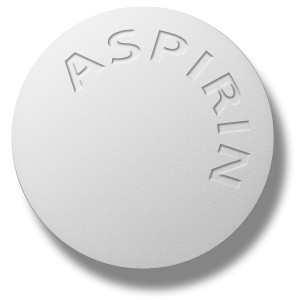 A new study has been released that reminds us that all drugs (whether prescription or non-prescription) have side-effects. This time a nation wide study from Denmark found that short-term use of the non-steroidal anti-inflammatory drugs (NSAIDs) ibuprofen (e.g. Advil and Motrin) and diclofenac is linked to a higher risk of cardiac arrest (the heart suddenly stops beating). It was an observational study so can't definitely say that ibuprofen and diclofenac caused the cardiac arrests, but the findings match a growing body of evidence.
A new study has been released that reminds us that all drugs (whether prescription or non-prescription) have side-effects. This time a nation wide study from Denmark found that short-term use of the non-steroidal anti-inflammatory drugs (NSAIDs) ibuprofen (e.g. Advil and Motrin) and diclofenac is linked to a higher risk of cardiac arrest (the heart suddenly stops beating). It was an observational study so can't definitely say that ibuprofen and diclofenac caused the cardiac arrests, but the findings match a growing body of evidence.
Since Ibuprofen and other NSAIDs are popular non-prescription medicines used worldwide, people assume they are safe to use. In Denmark, ibuprofen is the only NSAID sold as an over-the-counter drug, and only in small amounts. In the U.S., both ibuprofen and diclofenac are sold in both non-prescription and prescription forms.
In the study, they found an increased risk of cardiac arrest in ibuprofen and diclofenac users. However, they did not find a risk of cardiac arrest with the use of COX-2 selective inhibitors, rofecoxib and celecoxib, nor with the NSAID naproxen. One of the researchers (Dr. Gislason) therefore advises consumers to try to avoid diclofenac, to limit the use of ibuprofen to no more than 1200 mg per day, and that perhaps the safest is naproxen (up to 500 mg per day). From Medical Xpress:
'Harmless' painkillers associated with increased risk of cardiac arrest
Painkillers considered harmless by the general public are associated with increased risk of cardiac arrest, according to research published today in the March issue of European Heart Journal - Cardiovascular Pharmacotherapy.....The current study investigated the link between NSAID use and cardiac arrest. All patients who had an out-of-hospital cardiac arrest in Denmark between 2001 and 2010 were identified from the nationwide Danish Cardiac Arrest Registry. Data was collected on all redeemed prescriptions for NSAIDs from Danish pharmacies since 1995. These included the non-selective NSAIDs (diclofenac, naproxen, ibuprofen), and COX-2 selective inhibitors (rofecoxib, celecoxib).
A total of 28 947 patients had an out-of-hospital cardiac arrest in Denmark during the ten year period. Of these, 3 376 were treated with an NSAID up to 30 days before the event. Ibuprofen and diclofenac were the most commonly used NSAIDs, making up 51% and 22% of total NSAID use, respectively. Use of any NSAID was associated with a 31% increased risk of cardiac arrest. Diclofenac and ibuprofen were associated with a 50% and 31% increased risk, respectively. Naproxen, celecoxib and rofecoxib were not associated with the occurrence of cardiac arrest, probably due to a low number of events.
"The findings are a stark reminder that NSAIDs are not harmless," said Professor Gislason. "Diclofenac and ibuprofen, both commonly used drugs, were associated with significantly increased risk of cardiac arrest. NSAIDs should be used with caution and for a valid indication. They should probably be avoided in patients with cardiovascular disease or many cardiovascular risk factors." NSAIDs exert numerous effects on the cardiovascular system which could explain the link with cardiac arrest. These include influencing platelet aggregation and causing blood clots, causing the arteries to constrict, increasing fluid retention, and raising blood pressure. [Original study.]
 The US Food and Drug Administration (FDA) just issued a new warning about taking non-prescription and prescription pain relievers known as nonsteroidal anti-inflammatory agents (NSAIDS) during pregnancy. The FDA warned that using them from week 20 or later during pregnancy can cause rare, but serious, kidney complications in the unborn baby. This can lead to low levels of amniotic fluid (called oligohydramnios) surrounding the baby and possible complications.
The US Food and Drug Administration (FDA) just issued a new warning about taking non-prescription and prescription pain relievers known as nonsteroidal anti-inflammatory agents (NSAIDS) during pregnancy. The FDA warned that using them from week 20 or later during pregnancy can cause rare, but serious, kidney complications in the unborn baby. This can lead to low levels of amniotic fluid (called oligohydramnios) surrounding the baby and possible complications.
 Some recent studies looked at aspirin use and cancer and found that consistent use for a number of years (5 to 10 years) lowers the rate of a number of cancers, including colon cancer. However, the longer one takes daily aspirin - then harms start adding up, with a major one being gastrointestinal bleeding. NSAIDs (non-steroidal anti-inflammatory drugs) are also linked to lower rates of various cancers, but harms with long-term use are cardiovascular risks (stroke and heart attack). The first article discusses that many doctors think this lower cancer rate occurs because aspirin and NSAIDs
Some recent studies looked at aspirin use and cancer and found that consistent use for a number of years (5 to 10 years) lowers the rate of a number of cancers, including colon cancer. However, the longer one takes daily aspirin - then harms start adding up, with a major one being gastrointestinal bleeding. NSAIDs (non-steroidal anti-inflammatory drugs) are also linked to lower rates of various cancers, but harms with long-term use are cardiovascular risks (stroke and heart attack). The first article discusses that many doctors think this lower cancer rate occurs because aspirin and NSAIDs